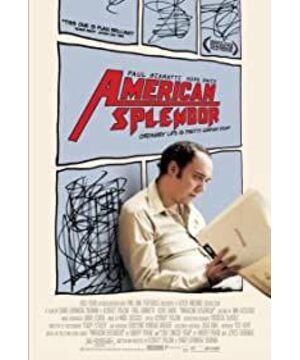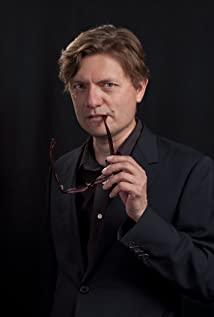browse_1 This
film won the Best Film Award of the 19th Sundance Film Festival Jury in 2003.
The movie is the autobiography of a cartoonist. The story begins with the protagonist Harvey Pekar's illness in 1975. At this time Harvey Pekar's throat had a problem, and his wife had left him. Harvey Pekar is a person with a bad life, and unsatisfactory things happen, so he often describes himself as "misfortune never comes singly". After spending most of his ordinary life, Harvey Pekar decided to change himself. Harvey Pekar used sketches to outline his life and showed these sketches to cartoonist friends, who liked them very much. As a result, a comic called "American Glory" was born, all of which are Harvey Pekar's real life experiences. In this way, Harvey Pekar gradually gained fame, but he was still an archivist working in a general hospital. After a chance encounter with his female high school classmate, Harvey Pekar met a woman from outside the city, and the two got married in a flash. After that, Harvey Pekar continued to live, while his wife slept with nothing to do all day. Afterwards, frequent TV shows made the two fly around and made them feel emotional. A few years later, Harvey Pekar's wife went to work in Jerusalem, but Harvey Pekar found that he had a lumps. After the wife came back, the two went to the hospital for an examination and found that Harvey Pekar had cancer. After that, it was a painful treatment process, but Harvey Pekar recovered. In the end, Harvey Pekar published a comic about his story of fighting the disease and adopted the little girl he met during the illness.
This is a very good-looking movie, but it has no theme. It has something to do with the autobiographical nature of the movie. In other words, this film is to show Harvey Pekar's important life experience, and has no purpose. Moreover, the series of highlights such as "depression", "misfortunes never come singly" and "bad" that the movie has always emphasized will not make the human body feel anything. Perhaps, there are really unlucky people like Harvey Pekar in the world, but most people still face life positively. Therefore, watching this film is just to understand a person and a person's lifestyle, nothing more.
Of course, the film story is still very funny, funny, and even some black humor. For example, the part where Harvey Pekar woke up was too funny. After watching the film, I found that Harvey Pekar and her wife are a perfect match! I guess Harvey Pekar would not live so long without his wife. It seems that meeting the right person is a very important thing in life, and this thing can even affect destiny.
In addition to the good-looking plot, the filming is very clever. The protagonist and the actors in the play appear in the film at the same time and discuss themselves. The movie also blends the real picture with the movie picture. This film can be called "true and false when it is fake"! The unique shooting method of this film, in my opinion, after watching thousands of movies, it is also unique and very novel. Especially in the opening line, Harvey Pekar told everyone before the movie started: This movie was made wrong. This is too funny!
Finally, I would like to say that the subtitles and dialogues of this film are well translated, that is, the comic subtitles in the screen are not translated for a word, which greatly reduces the understanding of the film. Does the translator only watch the subtitles and not the movie? Therefore, for me, this film is not complete, I can only say that I understand three-quarters of it, and the rest is hindered by the comics in English dialogue!
The actors in this film are great. The male protagonist Paul Giamatti looks like an ordinary person, and coupled with his excellent acting skills, it is almost a copy of Harvey Pekar. Paul Giamatti is really a green leaf acting school in Hollywood, but it's a pity that he still doesn't become popular. The heroine Hope Davis is very beautiful, but in the film she appears dumb, but she still can't hide her beautiful face under the glasses. In addition to her looks, her acting skills are also very good. She makes a weird woman very lifelike and looks funny. Other people in the film have no impression, even the real character Harvey Pekar, who is not a professional actor after all.
This is a relatively simple but beautiful movie. Although there is no grand theme, it perfectly interprets Harvey Pekar's life. It is a good movie. Finally, Harvey Pekar passed away in 2010. I wonder if his comics are still out?
hope-davis
sequence: 0959
2012-11-15
View more about American Splendor reviews











